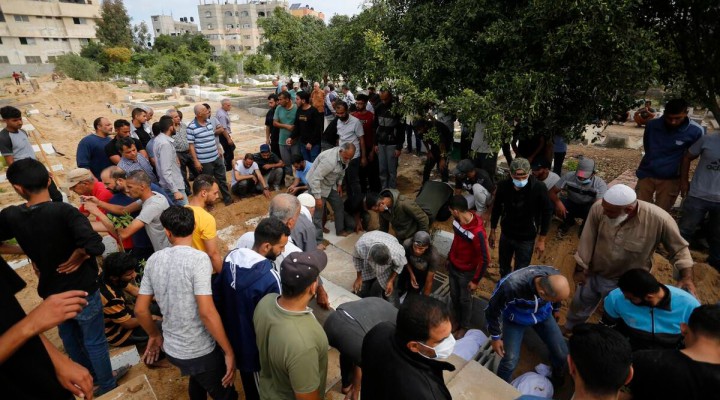The G7 give Israel the green light for genocide

Israel’s ongoing bombardment of Gaza and the international response to the unfolding colonial violence demonstrates clearly how Palestinians have always been regarded simply as collateral damage, both in humanitarian and political terms. The UN is calling for a humanitarian ceasefire, while consensus for a humanitarian pause was reached at the G7 summit in Japan.
While there are differences between a humanitarian ceasefire and a humanitarian pause – the latter being a temporary and supposedly alleviating measure before the bombing and killing resumes – the key consensus over discussing Palestinians from the humanitarian paradigm has set a dangerous precedent, as the entire world is witnessing.
Not only is the G7’s premise false — “We emphasise Israel’s right to defend itself and its people, in accordance with international law, as it seeks to prevent a recurrence” — but the compensation suggested for Palestinians’ relief is also insignificant and devoid of any humanitarian concern. Israel is committing “a text-book case of genocide” in Gaza, according to former senior UN human rights official Craig Mokhiber last month, which is far from being “in accordance with international law”. In the face of permanent displacement and annihilation, the G7 agreed on supporting “humanitarian pauses and corridors to facilitate urgently needed assistance, civilian movement, and the release of hostages.”
Facilitating civilian movement to where, exactly? The G7 know full well that Israel has forced Palestinians in Gaza to displace themselves, and proceeded to bomb not only their dwellings and infrastructure, but also their pathetic convoys en route to “safety”. The group’s statement also purportedly insists on the importance of protecting civilians, yet fails to address the obvious. Settler-colonialism does not protect civilians, and never has, because it depends upon the displacement and replacement of the indigenous population. Furthermore, in the current context of Israel’s aggression against Gaza, the importance of protecting civilians is tied to the humanitarian pause, which means that for a brief period, and while humanitarian aid is delivered to Palestinians, civilians would purportedly be protected temporarily. When the “pause” is over, Israel can resume its genocidal bombing of Palestinians, with the G7’s blessing and full impunity.
Instead of attempting to make humanitarian pauses and humanitarian ceasefires sound reasonable and “humanitarian”, why not expound upon the implications of such weak measures? Palestinians have been exploited by the humanitarian paradigm since the aftermath of the Nakba, which is unsurprising, given that the paradigm itself is exploited, now, to unbridled levels. Does anyone recall the UN’s dire warnings that Gaza will be unliveable by 2020? What is Gaza now? “A crisis of humanity,” according to UN Secretary General Antonio Guterres. Now there is no timeframe within which Gaza can become unliveable; Israel’s murderous bombing has done away with schedules. But the truth is that the UN relied solely on humanitarian aid in all the time it took Israel to launch such an attack on the enclave and the people, while the rest of the world is supposed to believe that there is no agenda behind the current colonial violence; that there is nothing behind the ground invasion other than rooting out Hamas; that that there is no intent to recolonise Gaza under the pretext of security concerns; and that there is no genocide taking place before our very eyes.
https://www.middleeastmonitor.com/20231109-the-g7-give-israel-the-green-light-for-genocide/
 TheAltWorld
TheAltWorld 
0 thoughts on “The G7 give Israel the green light for genocide”